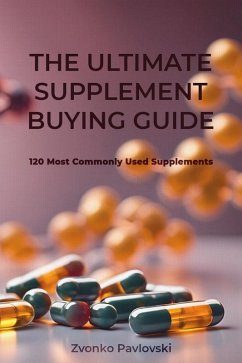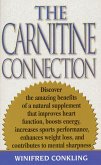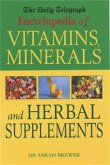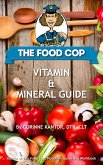Now, after 15 years of experience, I have written a comprehensive guide to buying 120 of the most commonly used and purchased supplements. This guide is not just based on researchI've personally tried 86 of these supplements myself. It provides clear insights into which supplements are worth buying, which forms are effective, and when spending extra money truly means better quality.
While you could find this information on your own, it would require significant effort and time. Instead, I've compiled everything into a single, easy-to-use guide. Whether your doctor recommends SOD, DAO, PEA, NAC, or any other supplement, this guide will help you confidently choose the right product.
Sample from the book:
24. Iron
Iron is essential to human life. Iron supplements are used to treat and prevent iron deficiency anemia and other conditions where iron levels are too low. Iron is a crucial mineral for the production of hemoglobin, which carries oxygen in the blood.
Supplemental Benefits of Iron:
Prevention and Treatment of Iron Deficiency Anemia: Iron deficiency anemia is a common condition characterized by a lack of healthy red blood cells due to insufficient iron. Symptoms include fatigue, weakness, pale skin, and shortness of breath. Iron supplements can help increase iron levels, thereby preventing and treating anemia.
Improved Energy Levels: Iron is essential for the production of hemoglobin, which transports oxygen to tissues and muscles, enabling them to function effectively. Adequate iron levels can improve energy and reduce fatigue, enhancing overall physical performance.
Better Oxygen Utilization: Iron supplementation ensures that the body can efficiently utilize oxygen, enhancing the overall metabolic process and.........
Forms and dosage:
Ferrous Salts:
Ferrous Sulfate: The most commonly prescribed form. Has low bioavailability, and can cause oxidative damage.
Ferrous Gluconate: Milder on the stomach compared to ferrous sulfate, but contains less elemental iron.
Ferrous Fumarate: Has poor bioavailability.
Ferrous Bisglycinate/Iron Bisglycinate: This form of iron is a preferred choice for many due to its high absorption rates and lower incidence of side effects compared to traditional iron supplements like ferrous sulfate.
Ferric Salts:
Ferric Citrate: Used for patients with chronic kidney disease to control phosphorus levels and treat iron deficiency.
Liposomal Ferric Pyrophosphate: Improved absorption, reduced side effects and gentle on the stomach.
Iron Polysaccharide Complexes:
These are designed to reduce gastrointestinal side effects and improve tolerance.
Examples include iron polysaccharide and heme iron polypeptide.
Heme Iron Supplements:
Derived from animal sources, these are better absorbed and less likely to cause gastrointestinal issues. Example: Proferrin.
Daily dose: Varies based on the severity of deficiency, age, and specific product. Common dosages range from 18 mg to 100 mg of elemental iron per day.
For most people with normal iron levels, taking iron supplements daily without a medical reason is unnecessary and potentially harmful!!
Dieser Download kann aus rechtlichen Gründen nur mit Rechnungsadresse in A, B, CY, CZ, D, DK, EW, E, FIN, F, GR, H, IRL, I, LT, L, LR, M, NL, PL, P, R, S, SLO, SK ausgeliefert werden.









